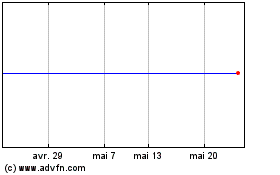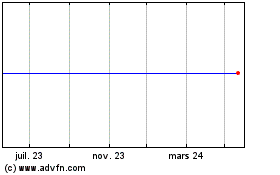Roche obtains CE certification for the first companion diagnostic to identify patients with gastric and gastroesophageal junction cancer eligible for targeted treatment with VYLOY
10 Octobre 2024 - 7:00AM
UK Regulatory
Roche obtains CE certification for the first companion diagnostic
to identify patients with gastric and gastroesophageal junction
cancer eligible for targeted treatment with VYLOY
- The new VENTANA CLDN18
(43-14A) RxDx Assay helps fulfil an unmet medical need by enabling
clinicians to identify patients with gastric or gastroesophageal
junction (GEJ) cancer who may benefit from a targeted treatment
option.
- CLDN18.2 is an emerging
biomarker in gastric and GEJ cancers and helps predict the
likelihood of response to targeted therapy.
- As the leader in companion
diagnostics, Roche continues to build on its commitment to improve
personalised healthcare to enable better patient
outcomes.
Basel, 10 October 2024 - Roche (SIX: RO, ROG; OTCQX: RHHBY)
announced today that the VENTANAⓇ
CLDN18 (43-14A) RxDx Assay is the first immunohistochemistry (IHC)
companion diagnostic test to receive CE Mark approval for
determining CLDN18 protein expression in tumours of patients with
gastric or gastroesophageal junction (GEJ) adenocarcinoma. These
patients now may be eligible for treatment with Astellas’ targeted
therapy VYLOYTM (zolbetuximab).
“Gastric cancer remains a significant global health challenge.
In Europe, only three percent of patients with metastatic disease
live beyond five years," said Matt Sause, CEO of Roche Diagnostics.
"Our new companion diagnostic is a significant step forward for
patients. By identifying those who may benefit from a targeted
treatment, this new test can expand treatment possibilities, and
aid clinicians to potentially improve outcomes.”
Current guidelines for gastric/GEJ cancer recommend using
biomarkers to guide therapeutic decision making. The new VENTANA
CLDN18 (43-14A) RxDx Assay can help determine CLDN18.2 status and
inform clinicians about the likelihood of patients benefiting from
CLDN18.2 targeted therapy.4 VYLOY is the first approved
treatment specifically targeting CLDN18.2-positive gastric/GEJ
cancer, expanding options for patients to receive therapies
appropriate for their specific disease.5
Gastric cancer is the fifth most common cancer
worldwide,1 with some of the highest rates observed in
Central and Eastern Europe.1 The disease is often
diagnosed late, because signs and symptoms are common to other
conditions,6 resulting in an overall survival rate of
just 25% among patients in the EU.7
About the VENTANA CLDN18 (43-14A) RxDx
Assay
The VENTANA CLDN18 (43-14A) RxDx Assay is a qualitative
immunohistochemical assay intended to be used in the assessment of
Claudin 18 (CLDN18) protein in gastric adenocarcinoma including
gastroesophageal junction (GEJ) adenocarcinoma. The OptiView DAB
IHC Detection Kit is used for staining on a BenchMark ULTRA
instrument. The assay is indicated as an aid in identifying
patients with gastric or GEJ adenocarcinoma who may be eligible for
treatment with VYLOY® (zolbetuximab) in accordance with the
approved therapeutic product labelling. The Roche test measures
expression of both variants of the CLDN18 protein (18.1 and 18.2
isoforms). CLDN18.2 is the predominant variant expressed in gastric
and GEJ cancers.4,8
The approval of the VENTANA CLDN18 (43-14A) RxDx Assay is based
on the results of the SPOTLIGHT and GLOW clinical studies where it
was used as the enrollment assay to identify patients whose tumours
were CLDN18.2 positive. CLDN18.2 positivity is defined as ≥ 75% of
tumour cells demonstrating moderate to strong membrane CLDN18
staining as measured by the VENTANA CLDN18 (43-14A) RxDx Assay. In
these studies, approximately 38% of gastric/GEJ cancer patients
expressed high levels of CLDN18 and were considered CLDN18.2
positive by the VENTANA CLDN18 (43-14A) RxDx Assay. Patients who
received a combination of zolbetuximab and chemotherapy experienced
a 25-31% reduction in disease progression or
death.9,10
About Roche
Founded in 1896 in Basel, Switzerland, as one of the first
industrial manufacturers of branded medicines, Roche has grown into
the world’s largest biotechnology company and the global leader in
in-vitro diagnostics. The company pursues scientific excellence to
discover and develop medicines and diagnostics for improving and
saving the lives of people around the world. We are a pioneer in
personalised healthcare and want to further transform how
healthcare is delivered to have an even greater impact. To provide
the best care for each person we partner with many stakeholders and
combine our strengths in Diagnostics and Pharma with data insights
from the clinical practice.
For over 125 years, sustainability has been an integral part of
Roche’s business. As a science-driven company, our greatest
contribution to society is developing innovative medicines and
diagnostics that help people live healthier lives. Roche is
committed to the Science Based Targets initiative and the
Sustainable Markets Initiative to achieve net zero by
2045.
Genentech, in the United States, is a wholly owned member of the
Roche Group. Roche is the majority shareholder in Chugai
Pharmaceutical, Japan.
For more information, please visit www.roche.com.
All trademarks used or mentioned in this release are protected
by law.
References
[1] Ferlay J, Ervik M, et al. Global Cancer Observatory: Cancer
Today (2024). Lyon, France: International Agency for Research on
Cancer. Available from: https://gco.iarc.who.int/today. Accessed
September 19, 2024.
[2] Brenner H, Rothenbacher D, et al. Epidemiology of stomach
cancer. Methods Mol Biol. 2009;472:467–77.
[3] Yang D, Hendifar A, et al. Survival of metastatic gastric
cancer: Significance of age, sex and race/ethnicity. J Gastrointest
Oncol. 2011 Jun;2(2):77-84.
[4] Roche. VENTANA CLDN18 (43-14A) RxDx Assay, CE Package Insert,
2024.
[5] Astellas press release, Astellas’ VYLOY™ (zolbetuximab)
Approved in Japan for Treatment of Gastric Cancer,
https://www.astellas.com/en/news/29026. Accessed September 19,
2024.
[6] National Cancer Institute. Gastric Cancer Treatment
(PDQ®)-Patient Version.
https://www.cancer.gov/types/stomach/patient/stomach-treatment-pdq.
Accessed September 19, 2024.
[7] European Network of Cancer Registries, Stomach Cancer
Factsheet, 2017.
[8] Saito, T. Matsuda, D. Moran, P-114 Claudin 18 isoform
expression in gastric adenocarcinoma and pancreatic adenocarcinoma,
Annals of Oncology, Volume 32, Supplement 3, 2021, Page S138, ISSN
0923-7534, https://doi.org/10.1016/j.annonc.2021.05.169.
[9] Astellas press release, Astellas to Present Positive Findings
from Phase 3 SPOTLIGHT Trial of Zolbetuximab during 2023 ASCO GI
Cancers Symposium. https://www.astellas.com/en/news/26946. Accessed
September 19, 2024.
[10] Astellas press release, Astellas Announces Positive Findings
from Phase 3 GLOW Trial of Zolbetuximab during March ASCO Plenary
Series. https://www.astellas.com/en/news/27481. Accessed September
19, 2024.
Roche Global Media Relations
Phone: +41 61 688 8888 / e-mail: media.relations@roche.com
Hans Trees,
PhD
Phone: +41 79 407 72 58 |
Sileia
Urech
Phone: +41 79 935 81 48
|
Nathalie
Altermatt
Phone: +41 79 771 05 25 |
Lorena
Corfas
Phone: +34 620 29 25 51
|
Simon
Goldsborough
Phone: +44 797 32 72 915 |
Karsten
Kleine
Phone: +41 79 461 86 83
|
Nina
Mählitz
Phone: +41 79 327 54 74 |
Kirti
Pandey
Phone: +49 172 6367262
|
Yvette
Petillon
Phone: +41 79 961 92 50 |
Dr. Rebekka
Schnell
Phone: +41 79 205 27 03 |
- 10102024_MR_VENTANA CLDN18_en


Roche (LSE:0QQ6)
Graphique Historique de l'Action
De Nov 2024 à Déc 2024

Roche (LSE:0QQ6)
Graphique Historique de l'Action
De Déc 2023 à Déc 2024
